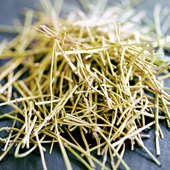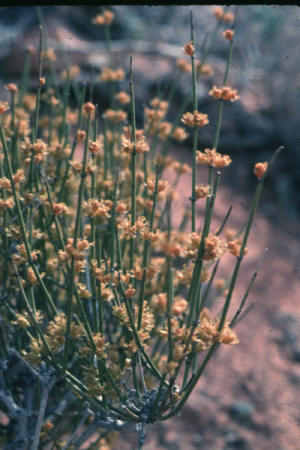Ephedra
Herbal Remedies and Medicinal Cures for Diseases, Ailments & Illnesses that afflict Humans and Animals
Aloe Vera •
Astragalus •
Bankoro •
Bilberry •
Bitter Gourd (Ampalaya) •
Bitter Orange •
Black Cohosh •
Cat's Claw •
Chamomile •
Chasteberry •
Coconut •
Cranberry •
Dandelion •
Echinacea •
Ephedra •
European Elder Tree •
Evening Primrose •
Fenugreek •
Feverfew •
Flaxseed •
Garlic •
Ginger •
Ginkgo •
Ginseng (Asian) •
Golden Seal •
Grape Seed •
Green Tea •
Hawthorn •
Hoodia •
Horse Chestnut •
Kava •
Lavender •
Licorice •
Malunggay Moringa Oleifera •
Milk Thistle •
Mistletoe •
Passion Flower •
Peppermint Oil •
Red Clover •
Ringworm Bush (Akapulko) – Cassia alata •
Saw Palmetto •
St. John's Wort •
Tawa Tawa •
Turmeric •
Valerian •
Yohimbe •
accept the bitter to get better
 Ephedra | |||
| |||
 Ephedra Flowering Plant | |||
| |||
Ephedra
The medicinal herb Ephedra as an alternative herbal remedy for asthma, wheezing, nasal congestion - Ephedra is an evergreen shrub-like plant native to Central Asia and Mongolia. The principal active ingredient, ephedrine, is a compound that can powerfully stimulate the nervous system and heart.Common Names--ephedra, Chinese ephedra, ma huang
Latin Name--Ephedra sinica Picture of Ephedra
What Ephedra Is Used For
- Ephedra has been used for more than 5,000 years in China and India to treat conditions such as colds, fever, flu, headaches, asthma, wheezing, and nasal congestion.
- It has also been an ingredient in many dietary supplements used for weight loss, increased energy, and enhanced athletic performance.
How Ephedra Is Used
The dried stems and leaves of the plant are used to create capsules, tablets, extracts, tinctures, and teas.
What the Science Says about Ephedra
- An NCCAM-funded study that analyzed phone calls to poison control centers found a higher rate of side effects from ephedra, compared with other herbal products.
- Other studies and systematic reviews have found an increased risk of heart, psychiatric, and gastrointestinal problems, as well as high blood pressure and stroke, with ephedra use.
- According to the FDA, there is little evidence of ephedra's effectiveness, except for short-term weight loss. However, the increased risk of heart problems and stroke outweighs any benefits.
- In recent years, the safety of ephedra-containing dietary supplements has been questioned by the United States Food and Drug Administration (FDA), the National Center for Complementary and Alternative Medicine, and the medical community as a result of reports of serious side effects and ephedra-related deaths. In response to accumulating evidence of adverse effects and deaths related to ephedra, the FDA banned the sale of ephedra-containing supplements on April 12, 2004. A suit by an ephedra manufacturer was upheld by a Federal District Court judge in Utah on April 14, 2005. The FDA appealed this ruling, and on August 17, 2006 the U.S. Court of Appeals for the Tenth Circuit upheld the FDA's ban of ephedra. The sale of ephedra-containing dietary supplements is currently illegal in the United States because of the high risk of ephedra-related adverse events. >>this article copied verbatim from wikipedia>>
Ephedra biochemistry
The alkaloids ephedrine and pseudoephedrine are the active constituents of the plant. Pseudoephedrine is used in over-the-counter decongestants. Derivatives of ephedrine are used to treat low blood pressure, but alternatives with reduced cardiovascular risk have replaced it for treating asthma. Ephedrine is also considered a performance-enhancing drug and is prohibited in most competitive sports. Some species in the Ephedra genus have no alkaloid content and are therefore essentially inert; however, the most commonly used species, E. sinica, has a total alkaloid content of 1–3% by dry weight. Ephedrine constitutes 40–90% of the alkaloid content, with the remainder consisting of pseudoephedrine and the demethylated forms of each compound. >> This article copied verbatim from wikipedia >>
Side Effects and Cautions about Ephedra
In 2004, the FDA banned the U.S. sale of dietary supplements containing ephedra. The FDA found that these supplements had an unreasonable risk of injury or illness--particularly cardiovascular complications--and a risk of death. The ban does not apply to traditional Chinese herbal remedies or to products like herbal teas regulated as conventional foods.
- Between 1995 and 1997, the FDA received more than 900 reports of possible ephedra toxicity. Serious adverse events such as stroke, heart attack, and sudden death were reported in 37 cases.
- Taking ephedra can also result in nausea, anxiety, headache, psychosis, kidney stones, tremors, dry mouth, irregular heart rhythms, heart damage, high blood pressure, restlessness, sleep problems, irritation of the stomach, and increased urination.
- Women who are pregnant or breastfeeding and children should avoid taking ephedra. Using ephedra may worsen many health conditions such as cardiovascular disease, kidney disease, sleep disorders, and diabetes.
- Ephedra use may lead to serious health problems when used with other dietary supplements or medicines.
- Combining ephedra with caffeine increases the risk of potentially serious side effects.
- Tell your health care providers about any complementary and alternative practices you use. Give them a full picture of what you do to manage your health. This will help ensure coordinated and safe care.
News About Ephedra
Pictures of the herb Ephedra
- Ephedra sinica.jpg